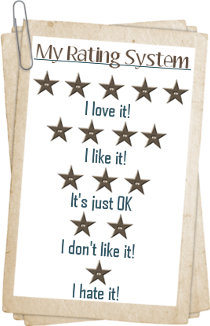During the six years I spent researching my new book, The Tin Ticket: The Heroic Journey of Australia’s Convict Women, I never once thought about battles and bayonets until I discovered that Agnes McMillan, one of the book’s feisty heroines, happened to witness an event that changed the course of Australia’s history.
Two years ago, I had one of the most rewarding experiences of my life, second only to the births of my children. I returned to Tasmania to follow the trail of three nineteenth-century convict women. They were among the twenty-five thousand who were shipped by the British government to Australia to serve as “tamers and breeders” in a colony where men outnumbered women nine to one. Fewer than two percent were violent felons, most arrested for petty theft, for pilfering food and clothing as the only means to survive other than prostitution, which has always been legal in the UK – even today.
Like most research explorations, the most significant discoveries happen when you least expect it. One incredible find took place in a little museum in Lismore, New South Wales, that’s only open a few hours every week. I happened to be on a daytrip to the area and by luck decided to take a look at the museum with Agnes McMillan’s descendants by my side. Tucked in the back was a tiny research room specializing in the town's early history. Between the pages of a dusty well-worn file was a scrap of newspaper listing the obituary of one of Agnes’s children. It confirmed that the family had been eyewitnesses to the Eureka Rebellion, often considered the birthplace of Australian democracy and the spark that led to early and progressive rights for women – the perfect place to end my book.
While relieved that I had stumbled upon a way to conclude Agnes’s remarkable story of survival and triumph over tragedy and prejudice, what intrigued me most was a mention in her son’s obituary that Agnes had protected her family from marauders on the gold fields by hiding their mined gold in the “nappies” (diapers) of her two youngest children. Ingenuity and humor marked every phase of a journey that turned ordinary women extraordinary as they faced down the darkest recesses of humanity while relying on grit, resiliency, and unwavering friendships.
When Agnes boarded the Westmoreland, the ship that would transport her from London to Van Diemen’s Land for pilfering a pair of warm stockings, she was initiated into a sisterhood of sorrow and solidarity in which true-blue mates looked out for one another. In her case, the grey-eyed sixteen-year-old was taken under the wing of surrogate big sister Janet Houston who would help her weather a tumultuous coming of age. Below decks where the girls and women were locked down just above the bilge, those more sinned against than sinning found reason to rejoice and to feel human. At the beginning of the voyage, each had been given a bible though few could read the words. Even so, the Good Book was put to good use as the girls creatively turned passages into decks of playing cards or tore out pages to curl their hair.
Once the crown’s chattel landed in Van Diemen’s Land (present-day Tasmania), they were housed in the Cascades Female Factory located in what the local press called “the valley of the shadow of death.” The Female Factory was the euphemistically-named prison where girls like Agnes awaited assignment as indentured servants to free colonists. Here the women were not allowed to speak, yet they devised elaborate schemes to communicate, leaving contraband behind a lose brick or passing clay pipes filled with forbidden tobacco. They even managed love affairs with the help of two corrupt wardens who smuggled love letters inside chickens delivered to the prison, notes that arranged clandestine meetings with men in town who would later become their paramours and husbands.
The malnourished, pock-marked women, many with missing teeth, dared to feel beautiful and alive as they endured the unrelenting injustice of being exiled for life, for crimes that today would scarcely merit a slap on the wrist. Under the cover of darkness, they sang and danced beneath the moonlit cliffs of Mount Wellington, donning bright scarves and gaudy earrings to adorn their closely-cropped hair. Working as convict maids, they learned how to skin and cook a “roo” to make it tasty. Scrubbing laundry along stone wash tubs and shivering in their thin shifts emblazoned with large yellow “C”s (for convict), Agnes McMillan, Janet Houston, and the vast majority of the twenty-five thousand transports survived and refused to succumb to their captor’s will. Bold women sent to a wild land against their will transcended seemingly insurmountable odds. Once freed, they lived their lives with dignity and forgiveness as loving mothers and grandmothers. These remarkable survivors inspire me every single day and make me proud to be a woman.
About the author ~
Deborah Swiss is the author of The Tin Ticket: The Heroic Journey of Australia's Convict Women and several other non-fiction books. Her latest historical research originated in 2004 in a post office in Launceston, Tasmania during a chance meeting with Tasmanian artist Christina Henri whose work honors female transports imprisoned in the Cascades Female Factory, most arrested for stealing clothing or food. The Tin Ticket explores the forgotten history of 25,000 women who were transported to Australian colonies in the early nineteenth century. It’s a story about the triumph of the human spirit told through the lives of three remarkable survivors.
Visit Deborah at her website
Friend Deborah on Facebook
Email Deborah at tassiestory AT yahoo DOT com
Her latest book ~
Historian Deborah J. Swiss tells the heartbreaking, horrifying, and ultimately triumphant story of the women exiled from the British Isles and forced into slavery and savagery-who created the most liberated society of their time.
Agnes McMillan and Janet Houston were convicted for shoplifting. Bridget Mulligan stole a bucket of milk; Widow Ludlow Tedder, eleven spoons. For their crimes, they would be sent not to jail, but to ships teeming with other female convicts. Tin tickets, stamped with numbers, were hung around the women's necks, and the ships set out to carry them to their new home: Van Diemen's Land, later known as Tasmania, part of the British Empire's crown jewel, Australia. Men outnumbered women nine to one there, and few "proper" citizens were interested in emigrating. The deportation of thousands of petty criminals-the vast majority nonviolent first offenders-provided a convenient solution for the government.
Crossing Shark-infested waters, some died in shipwrecks during the four-month journey, or succumbed to infections and were sent to a watery grave. Others were impregnated against their will by their captors. They arrived as nothing more than property. But incredibly, as the years passed, they managed not only to endure their privation and pain but to thrive on their own terms, breaking the chains of bondage, and forging a society that treated women as equals and led the world in women's rights.
The Tin Ticket takes us to the dawn of the nineteenth century and into the lives of Agnes McMillan, whose defiance and resilience carried her to a far more dramatic rebellion; Agnes's best friend Janet Houston, who rescued her from the Glasgow wynds and was also transported to Van Diemen's Land; Ludlow Tedder, forced to choose just one of her four children to accompany her to the other side of the world; Bridget Mulligan, who gave birth to a line of powerful women stretching to the present day. It also tells the tale of Elizabeth Gurney Fry, a Quaker reformer who touched all their lives. Ultimately, it is the story of women discarded by their homeland and forgotten by history-who, by sheer force of will, become the heart and soul of a new nation.
Agnes McMillan and Janet Houston were convicted for shoplifting. Bridget Mulligan stole a bucket of milk; Widow Ludlow Tedder, eleven spoons. For their crimes, they would be sent not to jail, but to ships teeming with other female convicts. Tin tickets, stamped with numbers, were hung around the women's necks, and the ships set out to carry them to their new home: Van Diemen's Land, later known as Tasmania, part of the British Empire's crown jewel, Australia. Men outnumbered women nine to one there, and few "proper" citizens were interested in emigrating. The deportation of thousands of petty criminals-the vast majority nonviolent first offenders-provided a convenient solution for the government.
Crossing Shark-infested waters, some died in shipwrecks during the four-month journey, or succumbed to infections and were sent to a watery grave. Others were impregnated against their will by their captors. They arrived as nothing more than property. But incredibly, as the years passed, they managed not only to endure their privation and pain but to thrive on their own terms, breaking the chains of bondage, and forging a society that treated women as equals and led the world in women's rights.
The Tin Ticket takes us to the dawn of the nineteenth century and into the lives of Agnes McMillan, whose defiance and resilience carried her to a far more dramatic rebellion; Agnes's best friend Janet Houston, who rescued her from the Glasgow wynds and was also transported to Van Diemen's Land; Ludlow Tedder, forced to choose just one of her four children to accompany her to the other side of the world; Bridget Mulligan, who gave birth to a line of powerful women stretching to the present day. It also tells the tale of Elizabeth Gurney Fry, a Quaker reformer who touched all their lives. Ultimately, it is the story of women discarded by their homeland and forgotten by history-who, by sheer force of will, become the heart and soul of a new nation.
Thanks to Penguin, I have two (2) copies of this book to give away.
GIVEAWAY Rules for entering:
- This contest is open to residents of USA only!
- Please complete the form below - do not leave information in the comments - it will not count.
- The contest will end on January 3, 2011 at 11:59PM EST; 2 winners will be selected and contacted thereafter.
- Once the winners are contacted, they will have 48 hours to respond to my email or another winner will be chosen (make sure to check your spam filters!).
- Book will be shipped directly from Penguin.






















